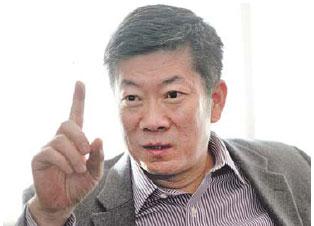
Yan Xiaohong is deputy director of the General Administration of Press and Publication.
Beijing will make it easier to gather evidence to prosecute IPR thievesBEIJING - China will make it easier to collect proof in copyright infringement cases as it takes another step to better protect intellectual property rights (IPR), a senior official has said.
Yan Xiaohong, deputy director of the General Administration of Press and Publication (GAPP), said a judicial interpretation that will be implemented by China's top court and top procuratorate this year will drop the requirement for a certificate to be produced bearing the signature of the copyright holder before a suspect can be accused of copyright infringement.
He said the complicated and difficult procedures connected to evidence collection - especially the requirement to produce the certificate and signature - had been a barrier to punishing copyright violators. Yan said many authors of original IPR material could not be found, and that meant some criminals went unpunished.
"The simplification of the procedure on evidence collection will effectively curb piracy," Yan told China Daily in an exclusive interview on Friday.
China launched a nationwide campaign in December to crack down on piracy. The initiative will continue until March.
Beijing will also issue national guidelines to strengthen law enforcement in copyright infringement cases in the new year, he said.
Before the end of February, 55 key copyright infringement cases will be finished under the supervision of GAPP, the top court, the top procuratorate and the Ministry of Public Security, he said.
One of the cases involves 50,000 pirated DVDs that were allegedly sold by He Zhenyu in Tianjin. Some 1,076 of them were said to have infringed upon the copyright of 59 movies owned by members of the American Film Institute, according to data from GAPP.
All such pirated products seized by police will be burned in late April. The incineration is likely to include DVDs, books, software and CDs, Yan said.
"In IPR protection, China hasn't done enough, but it is strengthening its efforts to create a healthy IPR protection market," Yan said. "It will need time. But some developed countries are also exaggerating the role of IPR protection, monopolizing the market to some extent."
IPR protection experts said IPR protection should not be used as an excuse to set a barrier for the transfer of technology and culture.
Copyright terms in most countries - including China - last for 50 years. But if the period of IPR protection is longer than that, a barrier is formed, the experts said.
"We will gradually raise people's awareness of the legal issues and at the same time improve the IPR protection mechanism by strengthening cross-country communications," Yan said.
He added that the establishment of the IPR protection mechanism was done to balance the benefits of the creators of intellectual property and the public, realizing a win-win situation.





